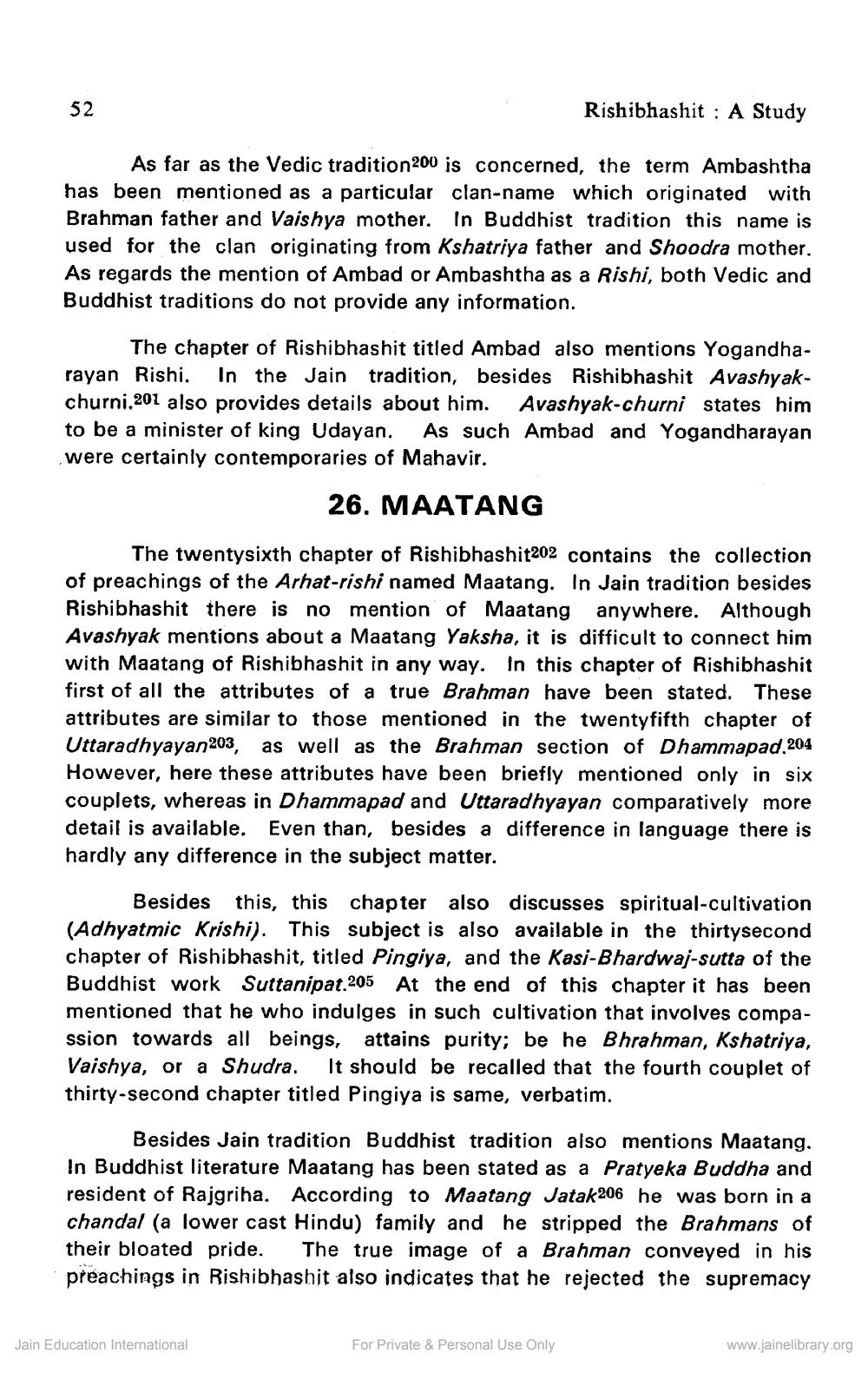________________
Rishibhashit : A Study
As far as the Vedic tradition 200 is concerned, the term Ambashtha has been mentioned as a particular clan-name which originated with Brahman father and Vaishya mother. In Buddhist tradition this name is used for the clan originating from Kshatriya father and Shoodra mother. As regards the mention of Ambad or Ambashtha as a Rishi, both Vedic and Buddhist traditions do not provide any information.
The chapter of Rishibhashit titled Ambad also mentions Yogandharayan Rishi. In the Jain tradition, besides Rishibhashit Avashyakchurni.201 also provides details about him. Avashyak-churni states him to be a minister of king Udayan. As such Ambad and Yogandharayan were certainly contemporaries of Mahavir.
26. MAATANG
The twentysixth chapter of Rishibhashit202 contains the collection of preachings of the Arhat-rishi named Maatang. In Jain tradition besides Rishibhashit there is no mention of Maatang anywhere. Although Avashyak mentions about a Maatang Yaksha, it is difficult to connect him with Maatang of Rishibhashit in any way. In this chapter of Rishibhashit first of all the attributes of a true Brahman have been stated. These attributes are similar to those mentioned in the twenty fifth chapter of Uttaradhyayan 203, as well as the Brahman section of Dhammapad.204 However, here these attributes have been briefly mentioned only in six couplets, whereas in Dhammapad and Uttaradhyayan comparatively more detail is available. Even than, besides a difference in language there is hardly any difference in the subject matter.
Besides this, this chapter also discusses spiritual-cultivation (Adhyatmic Krishi). This subject is also available in the thirtysecond chapter of Rishibhashit, titled Pingiya, and the Kasi-Bhardwaj-sutta of the Buddhist work Suttanipat.205 At the end of this chapter it has been mentioned that he who indulges in such cultivation that involves compassion towards all beings, attains purity; be he Bhrahman, Kshatriya, Vaishya, or a Shudra. It should be recalled that the fourth couplet of thirty-second chapter titled Pingiya is same, verbatim.
Besides Jain tradition Buddhist tradition also mentions Maatang. In Buddhist literature Maatang has been stated as a Pratyeka Buddha and resident of Rajgriha. According to Maatang Jatak206 he was born in a chandal (a lower cast Hindu) family and he stripped the Brahmans of their bloated pride. The true image of a Brahman conveyed in his preachings in Rishibhashit also indicates that he rejected the supremacy
Jain Education International
For Private & Personal Use Only
www.jainelibrary.org




